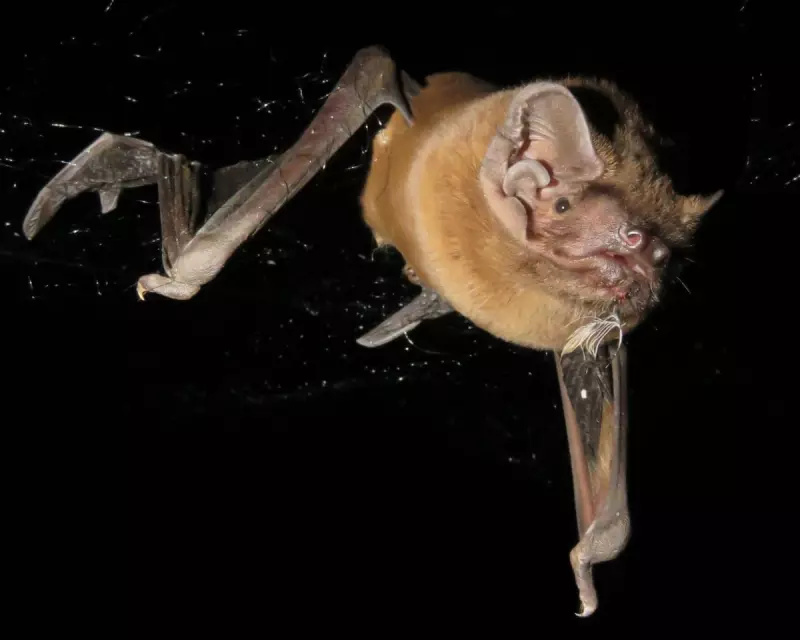
In a startling discovery that has stunned the scientific community, researchers have captured unprecedented footage of a barbastelle bat performing an astonishing aerial predation - catching, killing and consuming a robin entirely during flight.
The Grisly Mid-Air Capture
The remarkable event, recorded using advanced audio equipment in the Somerset countryside, reveals nature's raw brutality in stunning detail. The barbastelle bat, typically known for hunting insects, was documented pursuing and capturing the songbird during nighttime flight.
Dr. Charlotte Roemer, the University of Bristol researcher who led the study, expressed her amazement: "We've never witnessed anything like this in British bats. The entire sequence - from pursuit to consumption - happened in mid-air, challenging everything we thought we knew about bat feeding behaviour."
Advanced Technology Reveals Hidden Behaviour
The breakthrough discovery was made possible through sophisticated audio recording equipment that captured the precise sounds of the encounter. Researchers could distinguish the distinct noises of wingbeats, the moment of capture, and even the crunching of bones as the bat consumed its unusual prey.
What makes this discovery particularly significant:
- First documented case of a UK bat species hunting birds
- Complete mid-air consumption defies previous understanding
- Reveals unexpected flexibility in bat hunting strategies
- Highlights gaps in our knowledge of nocturnal predator behaviour
Implications for Wildlife Conservation
This extraordinary behaviour raises important questions about bat ecology and conservation. The barbastelle bat is already classified as near-threatened in Britain, and this discovery suggests their feeding habits are more complex than previously understood.
Dr. Roemer emphasised the importance of continued research: "This finding reminds us how much we still have to learn about even our most studied wildlife. It underscores the need for comprehensive conservation approaches that consider the full complexity of animal behaviour."
The research team continues to monitor bat populations across Somerset, using enhanced recording techniques to uncover whether this behaviour represents an isolated incident or a more common hunting strategy among these fascinating nocturnal predators.





